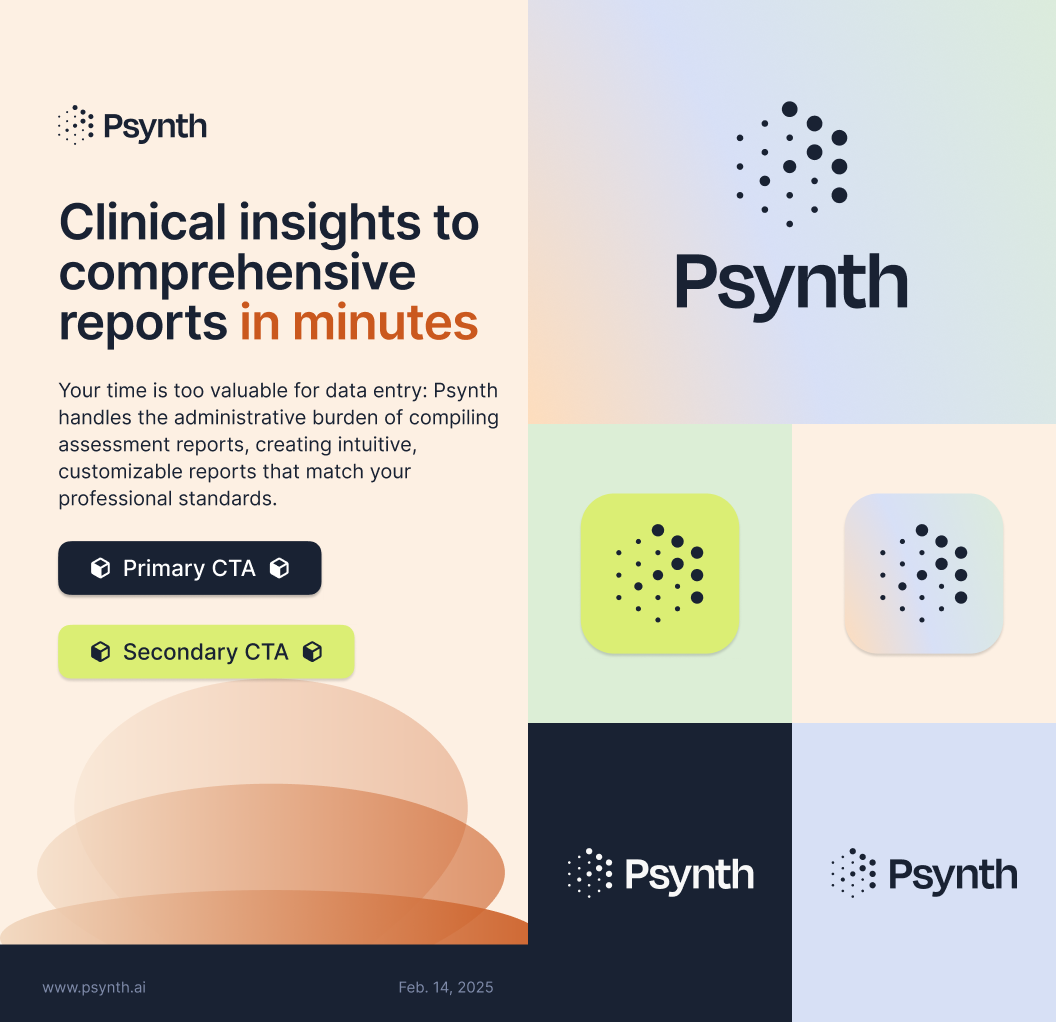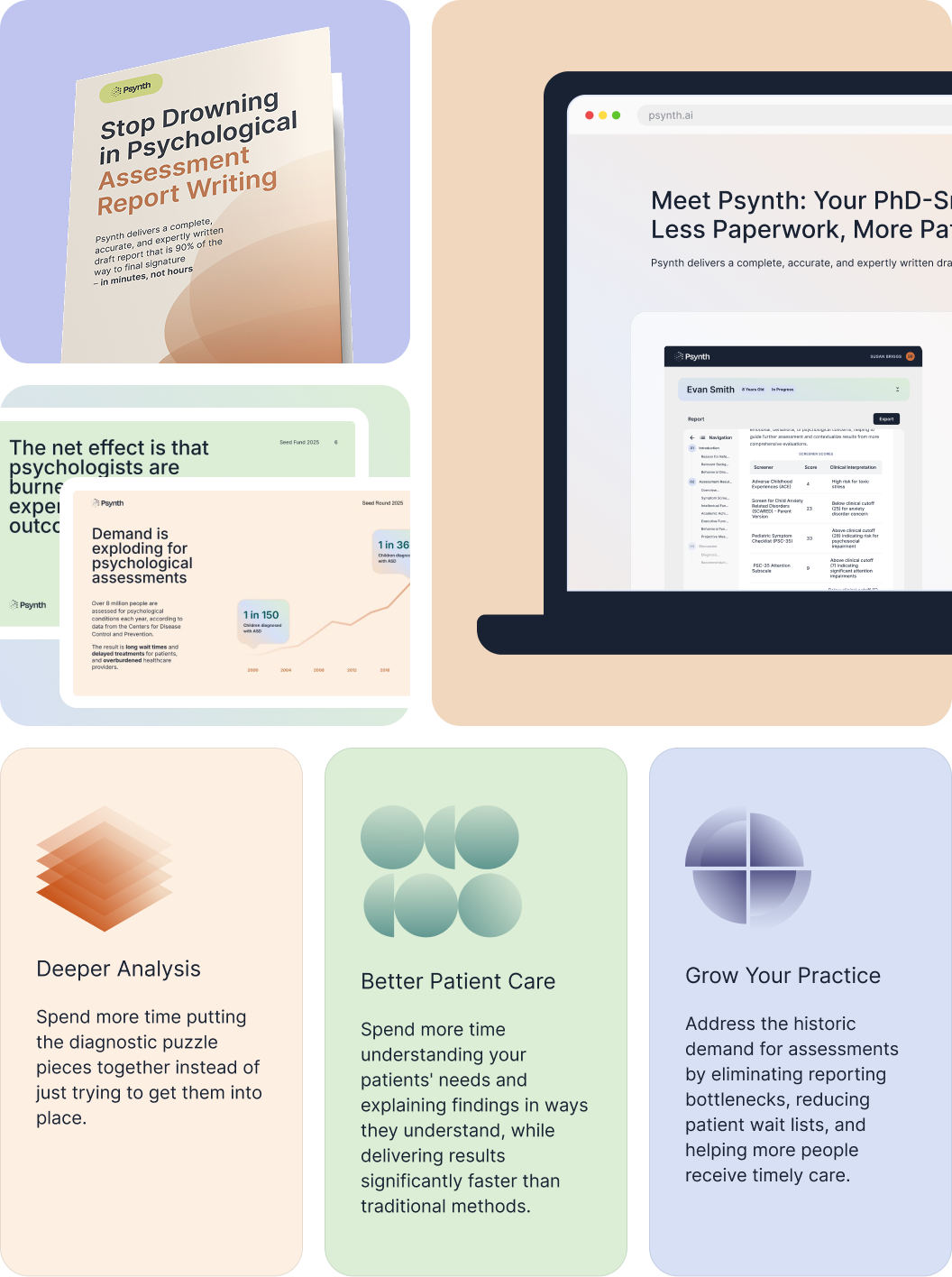Psynth becomes psychologists' most indispensable colleague.

Design That Earns the Right to Be in the Room
Mental health is not a space where you can fake credibility. Clinicians operate in a high-trust, high-scrutiny environment. They aren’t looking for sleek UI or Silicon Valley flash—they’re looking for something that belongs in a clinical setting.
From our earliest design decisions, we prioritized clarity, confidence, and calm:
- A clean, modern aesthetic that avoids both coldness and cuteness
- Typography that signals clinical professionalism
- A muted, trustworthy color palette with subtle points of warmth
- Interfaces that reduce cognitive load—not add to it
The result is a brand that says: This was built for you—and it belongs in your workflow.

Voice That Reflects Empathy and Intelligence
We knew we were speaking to experts—people who have spent years developing clinical judgment and trust with their patients. Our brand voice needed to reflect that same respect.
So we built a tone that is:
- Clinically intelligent, never buzzword-heavy
- Human and respectful, not overly casual
- Confident but never arrogant, always acknowledging the clinician as the final authority
From demo scripts to product microcopy, every word is designed to feel like it came from a partner who gets it.
Materials That Did More Than Sell—They Built Credibility
Our early brand assets weren’t splashy—they were surgical.
- A one-pager that clearly articulated the pain point and how Psynth solves it
- A pitch deck designed to resonate with both clinicians and investors
- A product site that emphasized trust, not trend
- Demo flows that showcased transparency and control
These materials didn’t just open doors—they set a tone. They told clinicians: You’re not being sold to. You’re being understood.
